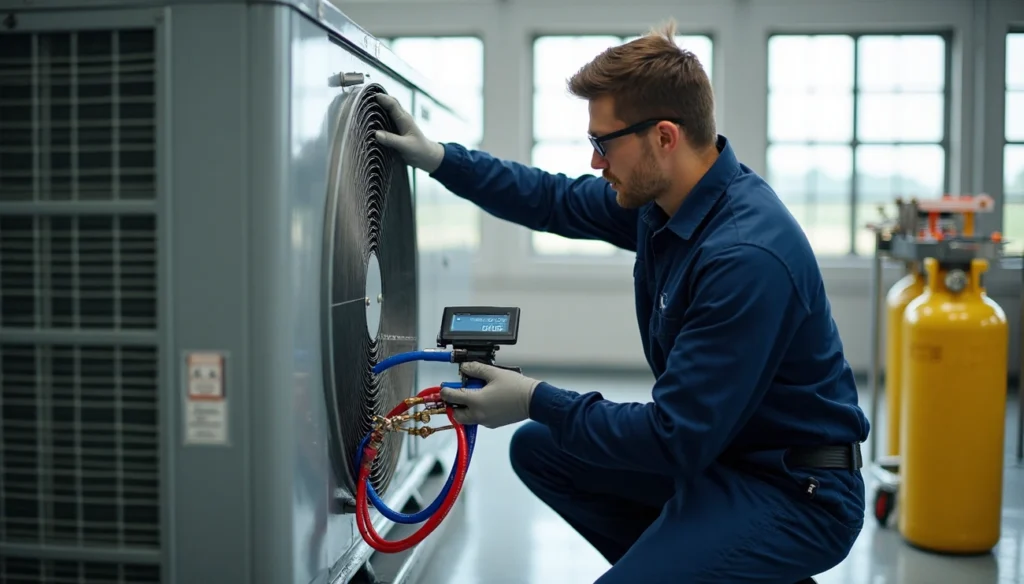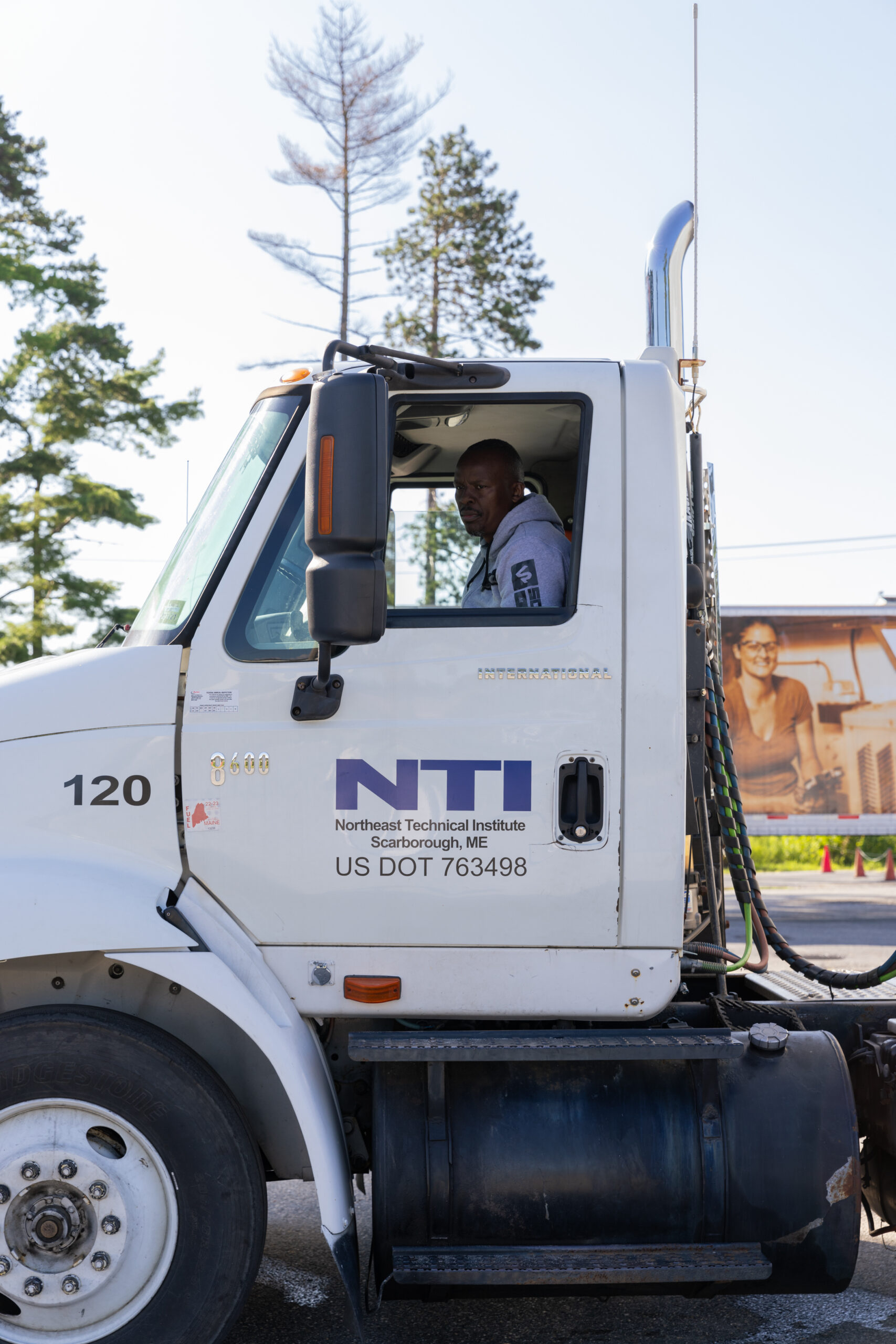
Boost Your HVAC Career with NTI’s EPA 608 Certification Training
If you’re working in the HVAC/R industry — or thinking about starting — there’s one certification that stands out as an essential first step: the EPA 608 Certification. At Northeast Technical Institute (NTI), we offer a fast, effective, and industry-aligned training program to help you earn it.
Who Needs EPA 608 Certification?
If your job involves installing, maintaining, repairing, or disposing of equipment that could release refrigerants into the atmosphere, this certification is required by federal law. Whether you’re a technician in HVAC, refrigeration, or appliance repair, EPA 608 certification ensures you’re trained to protect both the environment and yourself.
Employers actively look for technicians who hold this certification. In fact, many job offers require it as a condition of employment.
What is EPA 608 Certification and Why It’s Required in Maine
EPA 608 certification proves you know how to handle refrigerants safely and legally. This credential confirms you understand proper refrigerant management practices that prevent harmful releases into the atmosphere. Maine HVAC professionals need this certification to work legally and build successful careers in the field.
Federal requirement under the Clean Air Act
Section 608 of the Clean Air Act, passed in 1990, creates the legal foundation for EPA 608 certification. Congress enacted this legislation to address mounting concerns about ozone depletion and its effects on public health and environmental safety. The law requires certification for anyone who maintains, services, repairs, or disposes of equipment that might release refrigerants into the atmosphere.
The Clean Air Act also makes it illegal to intentionally vent refrigerants during maintenance, service, repair, or disposal work. This ban covers all refrigerants containing ozone-depleting substances plus their replacement chemicals. The EPA created these rules specifically to cut emissions of chlorofluorocarbons (CFCs) and hydrochlorofluorocarbons (HCFCs)—substances that scientists have proven damage the ozone layer.
Why Maine HVAC techs must comply
Maine technicians work under both federal EPA rules and state enforcement through the Department of Environmental Protection. The federal requirement applies nationwide, but Maine’s DEP takes active steps to ensure compliance throughout the state.
Every technician handling refrigeration and air conditioning equipment in Maine needs EPA 608 certification before touching any refrigerants. This applies whether you service homes, businesses, or industrial facilities—the location doesn’t change the requirement.
The certification level you need matches the equipment you’ll work on most. Household refrigerators and window units require Type I certification at minimum. Commercial refrigeration systems need Type II. Understanding these distinctions helps you choose the right certification path and avoid unnecessary testing later in your career.
Environmental and legal implications
The environmental reasons behind EPA 608 certification matter more than you might realize. Refrigerants that escape into the atmosphere stay active for decades or even centuries. Older refrigerants like R-12 and R-22 cause serious damage to the ozone layer, which is why proper handling became legally required.
The legal consequences of working without certification can devastate your career and finances. Technicians caught handling refrigerants without proper credentials face harsh penalties. The EPA can impose fines of up to $48,762 per day for each violation. These fines add up quickly for businesses, sometimes threatening their ability to stay open.
Your certification investment makes financial sense when you consider the alternatives. EPA certification costs in Maine typically range from $20-$150 for the examination fee, plus any preparation materials or training programs you choose. That’s a small price compared to potential fines or lost career opportunities.
Maine employers now treat EPA certification as a basic job requirement. Without it, you’ll struggle to find work in the HVAC field, no matter how much experience you have. Your certification isn’t just about following the law—it’s about protecting your ability to build a successful career in this growing industry.
Types of EPA 608 Certification Explained
EPA 608 certification comes in different types, each designed for specific equipment categories. Knowing these differences helps you choose the right certification for your career goals and understand what knowledge the exam will test.
Type I: Small appliances
Type I certification covers equipment containing five pounds or less of refrigerant that’s factory-sealed. You’ll work with household and light commercial equipment like domestic refrigerators, window air conditioners, packaged terminal air conditioners (PTACs), and vending machines.
Your exam will focus on proper recovery techniques and industry requirements for small appliances, including different recovery procedures for equipment made before and after November 15, 1993. The good news is that Type I certification offers an open-book exam format, which makes it more approachable for entry-level technicians. You’ll still need to pass the Core section first before you can service these smaller appliances.
Type II: High-pressure systems
Type II certification allows you to service or dispose of high-pressure and very high-pressure appliances, though it excludes small appliances and motor vehicle air conditioning systems. These systems use higher pressures to convert refrigerant from gas to liquid.
Your Type II certification covers residential air conditioners, heat pumps, supermarket refrigeration systems, rooftop units, and high-pressure chillers. You’ll encounter high-pressure refrigerants like R-22, R-407A, R-407C, R-410A, and R-502.
The exam emphasizes leak detection, equipment testing, and recovery techniques that minimize refrigerant loss. Working with certain refrigerants requires specialized equipment—R-410A systems need high-pressure manifold gages and hose sets with a 4000 psig burst pressure and 800 psig working pressure.
Type III: Low-pressure systems
Type III certification qualifies you to service or dispose of low-pressure appliances. These systems operate in a vacuum, which makes leak tests and proper pressurization critical parts of your service process.
You’ll typically work on large commercial or industrial equipment such as centrifugal chillers. The Type III exam tests specialized knowledge including purge unit operation, pressure-temperature relationships of low-pressure refrigerants, and safety requirements under ASHRAE Standard 15.
Equipment rooms for Type III systems often require oxygen deprivation sensors for all refrigerants and specific refrigerant sensors for substances like R-123.
Universal Certification: All-in-one
Universal Certification gives you the most complete credential, qualifying you to work on any type of refrigerant-containing equipment. This certification essentially combines Type I, Type II, and Type III into one credential.
Getting Universal Certification means passing all four sections of the EPA 608 exam—the Core section plus all three type-specific tests. You’ll answer approximately 100 questions total. While this requires more preparation, Universal Certification offers maximum career flexibility since you can legally work on any refrigerant system you encounter.
If you’re planning a long-term HVAC/R career, Universal Certification usually makes the most financial sense. You won’t need to return for additional certifications as your career grows. The testing costs for Universal Certification typically match what you’d pay for individual tests separately, making it a smart choice for those willing to prepare more thoroughly.
What’s Included in NTI’s EPA 608 Training
Our comprehensive two-day course goes beyond the basics. It’s designed not only to help you pass the exam but also to give you a deeper understanding of why this certification matters and how it directly impacts your work in the HVAC/R industry.
In this training, you will:
Learn about the different types of refrigerants and their applications
Understand environmental regulations and how refrigerants impact the ozone layer
Master proper handling, recovery, recycling, and disposal procedures
Prepare thoroughly for the EPA-approved certification exam, which is included in your course
Upcoming Class Dates & Details
Session 1: July 25 and August 1
Session 2: August 22 and August 29
Time: 8:00 AM
Investment: $820 (includes training materials and testing)
Locations available at NTI campuses in Scarborough, Bangor, and Auburn.
Why Choose NTI for Your EPA 608 Training?
Industry-experienced instructors who understand real-world HVAC/R challenges
Hands-on training and exam preparation
On-site testing for convenience
A proven track record of student success in the skilled trades
Ready to Get Certified?
Don’t let missing certifications hold back your career. Register today and take your HVAC/R skills — and your earning potential — to the next level.
Learn more and register at: ntinow.edu
Or email: pdixon@ntinow.edu






